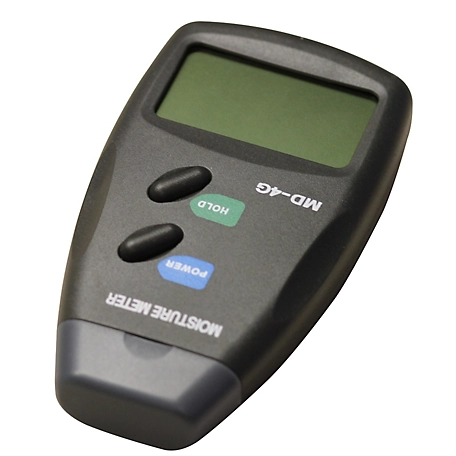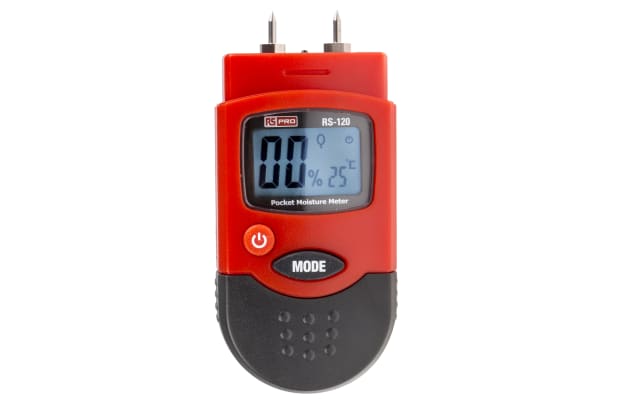Just How a Moisture Meter Can Improve Your Construction Jobs and Protect Against Damage
Just How a Moisture Meter Can Improve Your Construction Jobs and Protect Against Damage
Blog Article
The Ultimate Guide to Moisture Meters: A Comprehensive Review and Exactly How They Can Conserve You Cash
Dampness meters serve as essential devices in spotting and checking moisture web content in materials, assisting in preventing pricey damages and making sure the quality of items. Understanding the nuances of different kinds of moisture meters, their applications, and the potential cost-saving benefits they use can be a game-changer for companies and specialists alike.
Kinds Of Wetness Meters
One usual kind is the pin-type moisture meter, which gauges the electric resistance between two pins placed right into a product. Pinless dampness meters, on the various other hand, use electro-magnetic sensor plates to check a bigger area without creating damages to the product's surface area.

Infrared wetness meters measure the thermal residential properties of a material to identify its moisture material non-invasively, making them valuable for applications where pin or pinless meters may not be appropriate. Recognizing the different types of dampness meters available can help markets pick the most appropriate tool for their details moisture measurement demands.

Benefits of Using Wetness Meters
Moisture meters offer important advantages in accurately keeping track of and examining dampness levels in diverse materials and atmospheres. One of the key advantages of utilizing moisture meters is the prevention of potential damage caused by excess moisture.
Additionally, using moisture meters can result in enhanced energy efficiency. By recognizing locations with high dampness degrees, such as leakages or poor insulation, adjustments can be made to improve power preservation and lower utility prices. In agricultural setups, wetness meters play a critical function in optimizing plant yields by making it possible for farmers to keep an eye on soil dampness levels and make informed watering decisions. On the whole, the benefits of making use of wetness meters span throughout various markets, offering cost-efficient services and advertising much better quality control methods.
How to Pick the Right Wetness Meter
When choosing a dampness meter, it's essential to make certain that the meter is appropriate for the particular material you will certainly be screening. Different products have varying electrical homes that can affect dampness analyses, so choosing a meter created for your material is crucial for exact results. By thoroughly assessing these factors, you can select a wetness meter that meets your demands and supplies accurate dampness measurements for your projects.
Correct Methods for Moisture Meter Usage

Price Cost Savings With Moisture Meter Applications
Exactly how can the tactical utilization of moisture meters lead to substantial expense savings across numerous sectors? In the farming market, moisture meters help in figuring out the optimal time for collecting crops, preventing excess or over-drying wetness that can affect the final item's quality.
Similarly, in building and construction, dampness meters help protect against costly problems by spotting moisture degrees in building materials, such as wood or concrete, which can result in structural problems if not addressed without delay. By determining problem locations at an early stage, contractors can take rehabilitative procedures to avoid extensive repair services or replacements, eventually conserving time and cash.
Furthermore, in the food processing industry, wetness meters are crucial for monitoring item quality and guaranteeing compliance with safety regulations. By precisely determining dampness content in food, suppliers can prevent putridity, preserve freshness, and decrease waste, leading to substantial cost savings. In general, the calculated application of dampness meters is a beneficial financial investment that can lead you can look here to substantial cost reductions and enhanced effectiveness across different markets.
Final Thought
Finally, wetness meters are important tools for determining and detecting moisture levels in numerous products. By making use of the appropriate dampness meter and adhering to appropriate methods, users can efficiently prevent costly problems triggered by excess moisture. Purchasing a top quality dampness meter can cause considerable cost financial savings over time by determining possible problems at an early stage and enabling punctual removal. Ultimately, dampness meters are necessary instruments for maintaining the integrity and long life of products and structures.
Moisture meters offer as crucial tools in detecting and checking moisture content in products, aiding in stopping expensive problems and guaranteeing the top quality of products. Infrared wetness meters gauge the thermal buildings of a material to identify its dampness web content non-invasively, making them helpful for applications where pin or pinless meters might not be suitable.Wetness meters supply important benefits in properly evaluating and checking wetness levels in diverse materials and environments. In agricultural setups, dampness meters play a crucial function in maximizing crop yields by allowing farmers to monitor soil wetness degrees and make educated watering choices.In verdict, dampness meters are valuable tools for determining and finding dampness degrees in numerous products.
Report this page